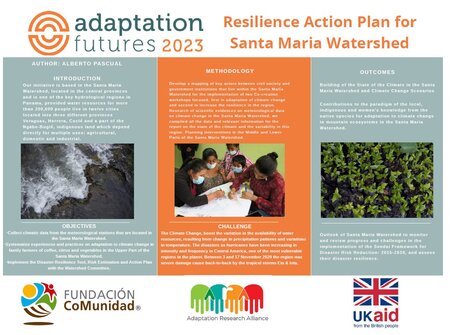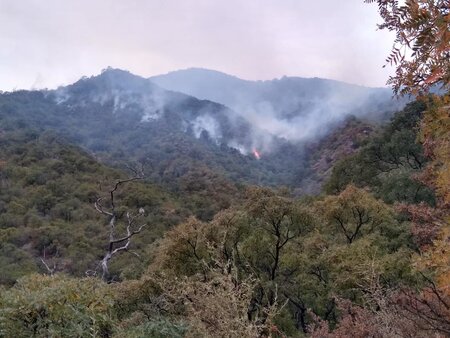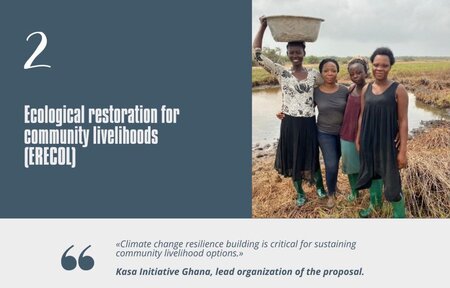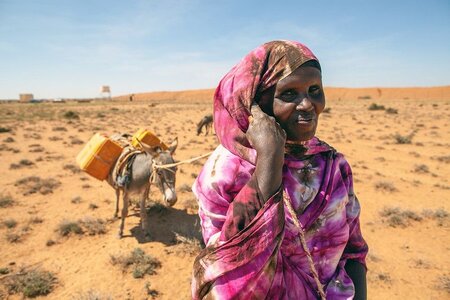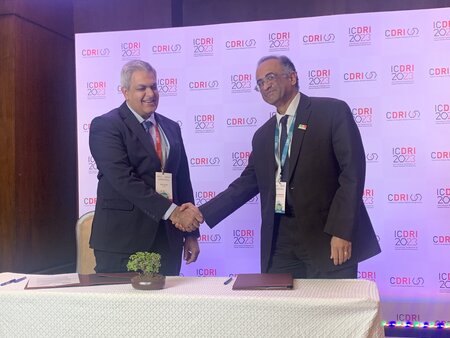Categories: Bridging research & action, Latin America & the Caribbean, Locally led adaptation
Nuevos Aportes Globales en materia de Adaptación al Cambio Climático
Con el objetivo de fomentar el diálogo y abordar últimas investigaciones, mejores prácticas e innovaciones en el campo de la adaptación al cambio climático, se desarrolló la Conferencia Adaptation Futures 2023.
Categories: Press release, ARA activities
ARA highlights its adaptation research for impact approach at AF2023
The global coalition's sessions help build a bridge between research and action to co-create outcomes for adaptation and resilience driven by the needs of the most vulnerable.
Categories: Bridging research & action, Funding for adaptation, ARA activities, North America, Locally led adaptation
Where there was fire, there will be forests
Asociación Civil Apu Kuntur, an NGO based in Argentina, is one of several projects awarded by ARA micro-grants to empower communities to identify adaptation solutions for local impacts resulting from climate change.
Categories: Programme development, News, Climate finance, Locally led adaptation
BASE awards 8 locally led climate solutions with the potential to unlock climate finance
The awarded projects show promise for solution to refining climate rationale while contributing to effective climate action at the grassroots level.
Categories: Bridging research & action, Capacity building, Videos, ARA activities, Locally led adaptation
Video: Awarding the ARA Action Research Micro-grants 2023
ARA Micro-grant Lead Sydney Church is joined by 2023's independent grant application reviewers to discuss the rationale behind the micro-grants, the selection process, and the value of this locally-led approach to adaptation research.
Categories: Funding for adaptation, Press release, ARA activities, Locally led adaptation
ARA awards 30 locally-led climate adaptation projects in Global South
30 awardees from Africa, Asia-Pacific, Latin America & the Caribbean will receive micro-grants of up to GBP 15,000 to carry out inclusive, locally-led action research for identifying needs and opportunities for building resilience.
Categories: Funding for adaptation, News, ARA activities, Locally led adaptation
ARA Statement of Intent with Fundación Avina
The ARA is partnering with the Building Approaches to fund local Solutions with climate Evidence (BASE) initiative, an initiative driven by ARA member Fundación Avina.
Categories: Press release, ARA activities
ARA partners with the Coalition for Disaster Resilient Infrastructure (CDRI)
The ARA has partnered with the Coalition for Disaster Resilient Infrastructure (CDRI), officially signing a Statement of Intent with the body at the International Conference on Disaster Resilient Infrastructure on 4 April 2023.
Categories: Bridging research & action, Learning & implementation, Capacity building, Case study, Africa, Asia-Pacific
Case study: How those leading urban risk assessments can engage communities at risk
By building trust, sharing skills, and supporting a platform for co-creation, these projects from Taiwan, the Philippines and Kenya show how experts and communities can work together for a shared future of urban resilience.
Categories: Bridging research & action, Learning & implementation, Capacity building, Case study, Middle East, Disaster risk reduction
Case study: Why those leading risk assessments should engage decision makers from the start
Lessons from Myanmar, Lao PDR and Vietnam show how decision makers can be engaged by experts to make risk-informed development decisions in the short, medium, and long-term.

